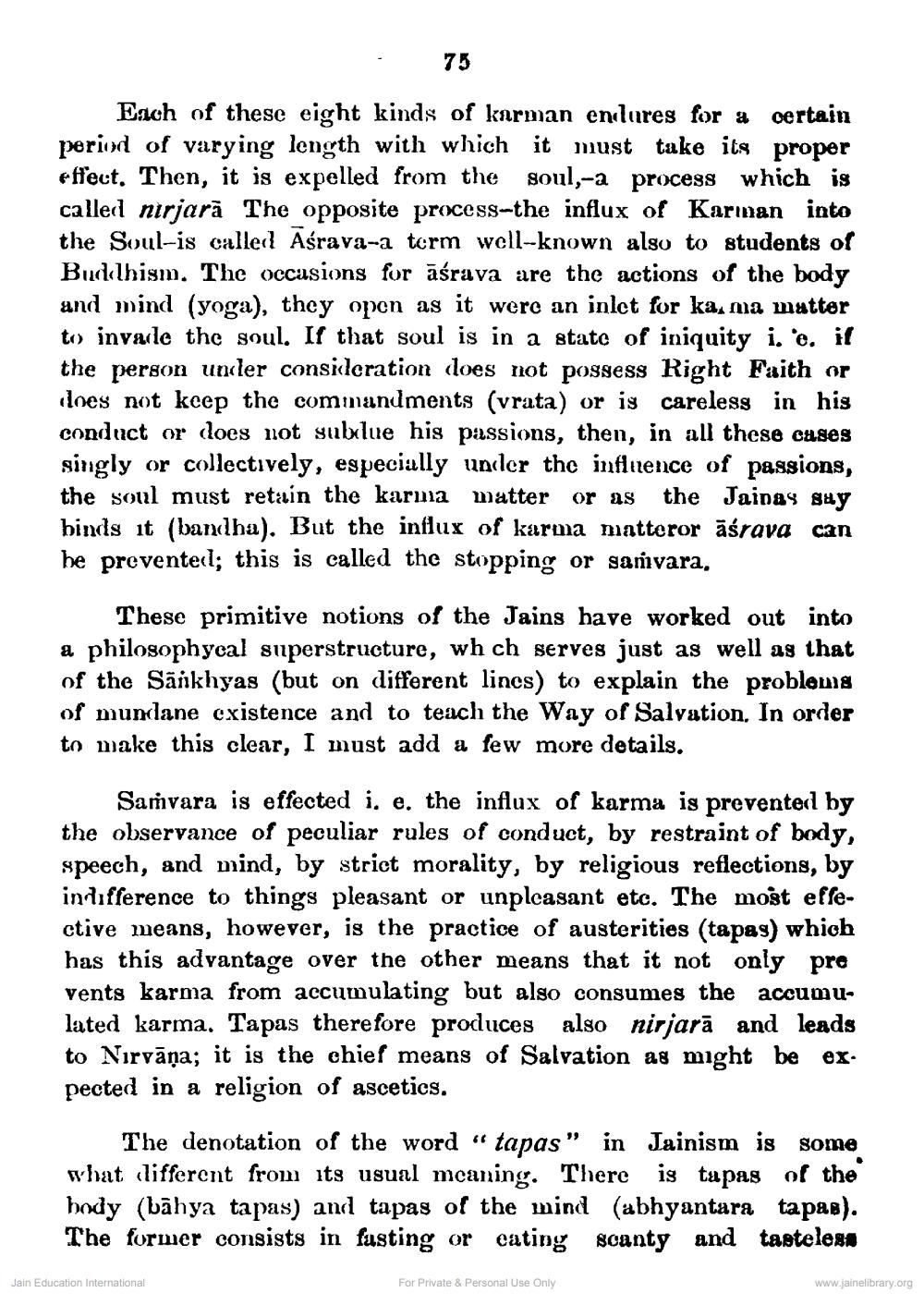________________
75
Each of these eight kinds of karman enlures for a certain period of varying length with which it must take its proper effect. Then, it is expelled from the soul,-a process which is called nirjară The opposite process the influx of Karman into the Soul-is called Aśrava-a term well-known also to students of Budhism. The occasions for āśrava are the actions of the body and mind (yoga), they open as it were an inlet for ka, ma mattor to invalle the soul. If that soul is in a state of iniquity i. e. il the person under consideration does not possess Right Faith or cloes not keep the commandments (vrata) or is careless in his conduct or does not subulue his passions, then, in all these cases singly or collectively, especially under the influence of passions, the soul must retain the karma matter or as the Jainas say binds it (bandha). But the influx of karma matteror āśrava can he preventel; this is called the stopping or samvara,
These primitive notions of the Jains have worked out into a philosophycal superstructure, wh ch serves just as well as that of the Sānkhyas (but on different lines) to explain the problems of mundane existence and to teach the Way of Salvation. In order to make this clear, I must add a few more details.
Samvara is effected i. e. the influx of karma is prevented by the observance of peculiar rules of conduct, by restraint of body, speech, and mind, by strict morality, by religious reflections, by indifference to things pleasant or unpleasant etc. The most effective means, however, is the practice of austerities (tapas) which has this advantage over the other means that it not only pre vents karma from accumulating but also consumes the accumulated karma. Tapas therefore produces also nirjarā and leads to Nirvāņa; it is the chief means of Salvation as might be ex. pected in a religion of ascetics.
The denotation of the word “ tapas” in Jainism is some what different from its usual mcaning. There is tapas of the hody (bāhya tapas) and tapas of the mind (abhyantara tapas). The former consists in fusting or cating scanty and tasteless
Jain Education International
For Private & Personal Use Only
www.jainelibrary.org




